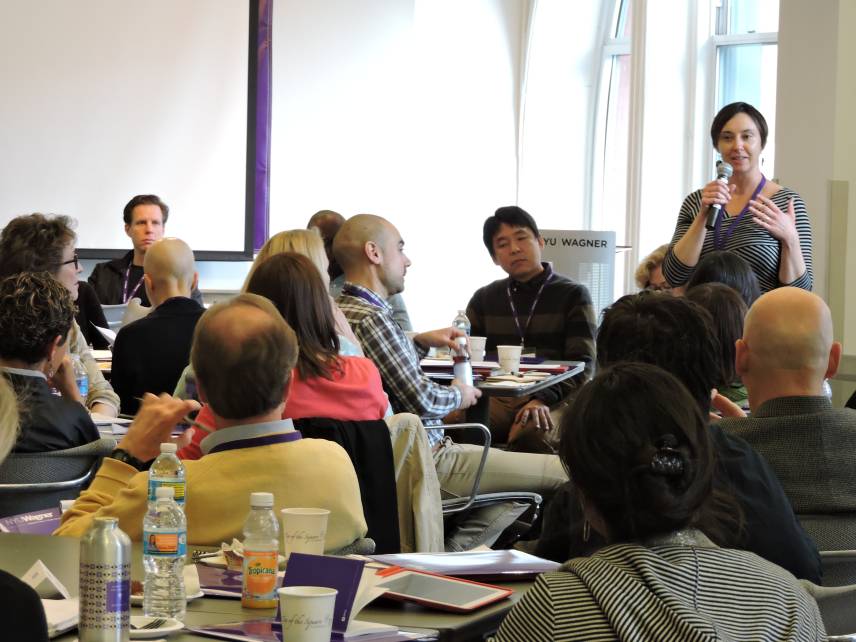Bridging the Individual and Collective Dimensions of Leadership

Co-Lead Net organizes their second Collective Leadership Research Workshop at NYU Wagner
On April 23, NYU Wagner professors Sonia Ospina and Erica Foldy launched the second Collective Leadership Research Workshop, a three-day workshop titled Logics in Tension: Bridging the individual and collective dimensions of leadership. In partnership with the NYU Leadership Initiative, this event brought together members of the Collective Leadership Network (Co-Lead Net), a community of scholars and practitioners from across ten countries and various academic and practitioner institutions. The purpose was to explore how to practice, theorize, research, and teach leadership in ways that incorporate both its individual and collective dimensions.
The workshop engaged two different audiences. One was NYU students, scholars, and members of the larger NYU community, who had a multi-generational conversation about how individuals develop their own leadership capacity while also creating the conditions necessary for collective success. This conversation reinforced the value of collectivity across roles, culture, generations, and disciplines to open new perspectives to challenging issues. The group also reflected on formative leadership experiences, explored the role of reflection in advancing collective leadership, and discussed the dilemma of developing and practicing collective forms of leadership within hierarchical institutions.
The other audience, academic and practice-oriented scholars, explored the implications of the tension between individual and collective dimensions for how to practice both rigorous research and effective teaching of leadership.
The group grappled with various understandings of collective leadership (the term encompasses a plurality of perspectives) and their impact on how we connect the individual and the collective, and how this affects our research and teaching decisions. Participants also explored concrete tools and techniques to improve research and teaching practices highlighting the interdependent connections between the self and the groups in making leadership happen.
In the end, workshop participants agreed to hold the individual-collective tension more lightly and experiment with the resulting consequences, while paying attention to the synergy that emerges from maintaining the tension in awareness, and not seeing the individual and the collective as mutually exclusive. Participants also appreciated the opportunity to engage in an explicit conversation on their teaching practice, something that seldom happens in academic research conferences.
Finally, a question that brought much energy to the concluding conversation—suggesting the need to continue exploring it as the network moves forward—was: “Leading for what and with whom?” In other words, what difference does the specific purpose of leadership (or the challenge that it calls forth) make for the kind of leadership that emerges and for how we think about it in research, teaching, and practice? Given this question, participants agreed that it was essential for the collective leadership conversation to further explore the role of broad social values like justice, democracy, citizenship, equity, and equality.